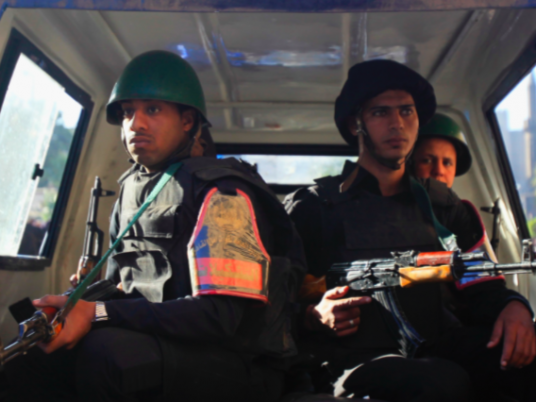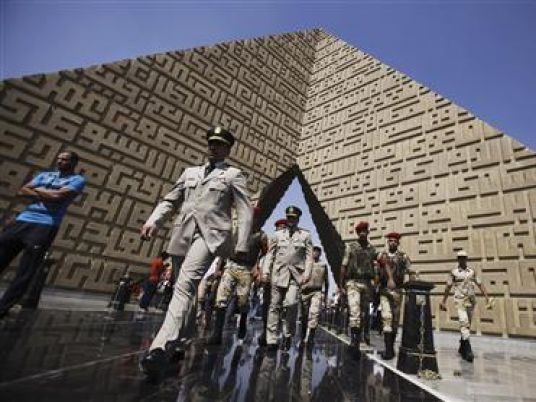1925: Cairo is the most beautiful city in the world…
1950: Paris and London compete with Cairo…
2010: Barcelona, Mexico City, Comoros Islands, Sydney, Tokyo… Beirut… London, Paris, Cairo
The city gently infiltrates me, an aging city, flirts with me
I open the door wide open for her, she infiltrates me unabatedly…
I have never been to Tokyo, and I have never set foot in New York
I was not born in the sixties, and I know nothing of the past and the aesthetics of cities…
There are moments every day, when all the cities of the world become whores, whores that sell you their bodies and bread
You stumble upon their details and notice their sparkling eyes…
But you are only a passer-by, whose body touches a space and hence loses its masculine or feminine side…
Swallow the city to heal yourself…
The swallowed city turns from a whore into an embryo … who strangles indefinitely …while your plastic womb … desecrates it with your selfishness
Let the city be…. Give it a chance to infiltrate you gently, rather give yourself the same chance to infiltrate it…
(Translated excerpt from the “Randoms” book installation by Lebanese writer Mona Merhi)
Cairo, like most cities, is a multifaceted being burdened with the histories of its 18 million inhabitants–as well as its own. Cairenes embody the city as much as it embodies them. Their narratives of the city are colored by their personal histories and experiences of inhabiting it. Feelings of belonging and endearment towards the city are mixed with those of hatred and nostalgia for a glorious, bygone past. Experiencing the complexity of Cairo is not possible without experiencing its people.
In an experimental book installation entitled “Randoms,” Lebanese writer, actor and theater director Mona Merhi provided a diary of personal reflections on her three-week stay at Artellewa, an artist-run space in the informal Cairo neighborhood of Ard al-Lewa. The installation, which was open to the public for a single night, comprised four large scrolls of text hanging from the gallery’s walls. At the center of the small exhibition space, four pocket-sized flipbooks conjured up moving images of city dwellers wandering through the capital’s bustling streets.
Instead of a strict narrative delineated through the successive pages of a standard book, audience members were free to unroll the scrolls and read the texts in any order they wished, matching the floating texts with different flipbooks to develop their own urban narratives. The underlying theme, however, remained constant, portraying a city usurped by its residents; one that could not be experienced without engaging with them.
Indeed, “Randoms” could not be experienced as an artistic project in isolation from its multi-layered context. Walking up Mohamed Ali al-Essary Street to Artellewa, audience members stumbled over speeding motorcycles, while trucks transporting sheep to slaughterhouses for the Eid holidays careened down the alley from the opposite direction.
At the street’s entrance, three young local DJs spun popular tunes. Undisturbed by the loud music, customers at a neighboring coffee shop continued smoking their water pipes while watching an Egyptian movie on the television.
But is this experience specific to Arab metropolises, as Merhi suggests in one of her texts? She writes:
I look at the paper clips in my little notebook
A stream of unrelated words… I recorded during my cab ride
I am no good at drawing maps
I almost got lost yesterday on the street, where I’ve been residing for only one week because I returned from Downtown alone
And if I find a map in my hands, I would not be able to read it…Or should I say decipher it…
What a beautiful experience it is to get lost in a city…
Berlin is its own creature. You can only enjoy discovering if you are alone…
I often get lost in Cairo…
There are cities that you cannot enjoy discovering unless you become like it, dependent emotionally on the eyes, ears and tongues of its residents
There are cities that are yet inseparable from the bodies and breath of its inhabitants…
Beirut–like Cairo–is a city that is inseparable from its inhabitants, explains Merhi. The Lebanese capital evokes the diverse experiences and lives of its people. Their political and religious affiliations, as well as their family histories, are all part and parcel of how visitors perceive it. It is as if they possess the city.
Berlin, on the other hand, forced Merhi to overcome her anxiety and wander around the city referring only to a map and the directions given her by a local resident. Other people she encountered refused to provide her with directions, as she relays in the text. But this solitary yet beautiful experience, as Merhi describes it, reflects a different experience with the inhabitants of another city, where, as a foreigner, one is free from the city’s often overwhelming historical baggage.
In Arab cities, we are weighed down by a history, which we are both part of and which defines the ways in which we relate to our respective cities. Feelings of nostalgia for a better past vis-à-vis a degraded contemporary social, economic and cultural life are informed by our experiences of living in the cities, and by the numerous stories we are told by our elders.
As a repeat visitor to Cairo, Merhi’s own nostalgic feelings for the past are reflected in her stories about loud city markets and chaotic streets. Suddenly, the urban noise fades, and she can only hear the songs of Egyptian music icon Um Kalthoum playing inside her head as she sees a statue of the celebrated diva gracefully overlooking the city from Zamalek’s Um Kalthoum Square.
Are Berlin residents similarly burdened by their personal and collective histories? Probably. Only the casual visitor to Berlin is free of it, with relationships within the city being highly institutionalized.
Cities of the developing world are less successful in enforcing strict narratives and relationships among their people, in spite of the various attempts. For this reason, a city like Cairo is perhaps best experienced through the vernacular randomness of its everyday; through the music spun by the DJs on the street; and through “the traffic lights… the train station… Abo el-Leif singing King Kong… a friend, or Um Saleh, the coffee shop owner,” who Merhi mentions in her text on Cairo and Berlin.
Still considered by the artist a “work in progress,” the installation was shown at Artellewa on 12 November.




